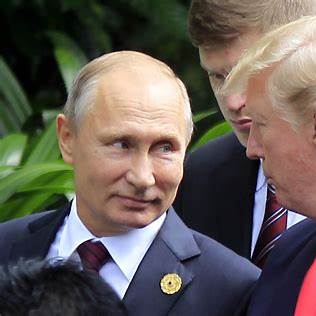Trump Shifts Tactics on Ukraine War, Signals Economic Pressure on Russia
In a notable shift in his diplomatic approach, U.S. President Donald Trump has intensified his rhetoric against Vladimir Putin, signaling a stricter stance on the ongoing war in Ukraine. While previously critical of Ukrainian President Volodymyr Zelensky, Trump’s latest statements suggest a pivot toward stronger economic measures aimed at Moscow.
Jandira Correia Fernandes
3/31/20251 min read


The President of the United States has redefined his approach to negotiations to end the war in Ukraine, increasing pressure on Putin with more forceful statements.
During an interview with NBC News last Sunday, Trump warned that if he determines Russia is responsible for prolonging the war, he will introduce substantial tariffs on Russian oil exports. "If I conclude that Russia is at fault – and it might not be – I will impose tariffs on every barrel of oil leaving that country," he stated. Additionally, he cautioned that nations purchasing Russian oil would face significant trade restrictions from the U.S., including a 25% import duty.
This assertive stance comes at a time when Putin has suggested forming a transitional government in Ukraine, effectively removing Zelensky from power. According to reports from the France-Presse agency, this proposal has further fueled uncertainty regarding the region’s stability and the prospects for peace negotiations.
Although Trump had previously pledged to swiftly resolve the conflict, the situation remains unresolved despite ongoing diplomatic efforts. A recent agreement between Russia and Ukraine provided for a temporary ceasefire to facilitate safe navigation in the Black Sea, but concerns persist over its longevity. Trump has confirmed that further discussions with Putin are scheduled in the coming days.
Beyond his remarks on Russia, Trump has also escalated his criticism of Zelensky, previously labeling him a "dictator." Additionally, he has hinted at financial repercussions for Ukraine should it fail to agree to a resource-sharing arrangement that would grant the U.S. a significant stake in its natural assets.
This recalibrated approach indicates a shift toward leveraging economic tools and trade restrictions to pressure both sides into negotiations. Whether these measures will expedite a resolution or lead to further geopolitical tensions remains to be seen.
